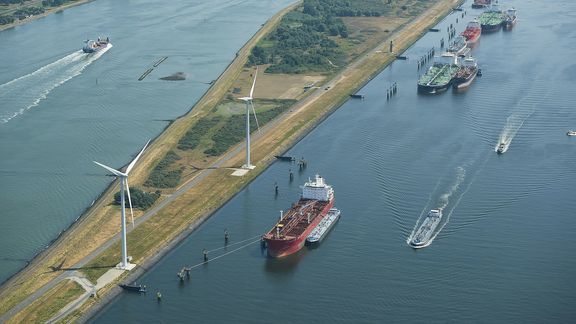Port of Rotterdam Authority makes greener sea-going shipping more accessible
From the start of 2019, the Port of Rotterdam Authority will widen and facilitate the Green Award discount for sea-going shipping. The discount will encourage safe and green shipping in the liquid bulk segment. From 2019 onwards, certified chemical tankers and sea-going vessels with a cargo capacity (DWT) of less than 20,000 tons may also make use of the scheme.

Also new for 2019 is that the Port Authority is making the port dues process more customer friendly for shipping lines whose vessels call at the Port of Rotterdam. In close collaboration with the market, the billing process will be more complete, quicker and more transparent. The changes to the billing of seaport, buoy and dolphin dues, together with waste charges will be implemented first. They will be completed in 2019. In addition, in 2019 we shall launch the modernisation of our inland shipping system to increase the ease of use.
Port tariffs will rise in line with previous agreements
As the Port of Rotterdam Authority, Deltalinqs, VRC and VNPI agreed in 2017, the port tariffs for the port of Rotterdam will be increased by 1% in 2019. The port tariffs were then set for the years 2018-2020. Setting the tariff increases provides the market with clarity. Rotterdam is using this conservative rate of increase in tariffs to increase its competitive position among the surrounding seaports.
In line with the three-year agreement, the Port Authority will adopt the specific measures, such as transhipment discounts for containers, to strengthen Rotterdam's position as a container hub and the port tariffs for tankers carrying crude oil will be set at 1.5% below the general increase. This means the difference between port tariffs for sea-going vessels carrying mineral oil products will be further reduced compared to those charged by surrounding seaports. The inland shipping dues will rise by 1% per year for the next three years.
Market consultation
The Port Authority, Deltalinqs, VRC and VNPI have fixed rules on how the port dues rate is set each year. Through structured market consultation, the sector is meeting the government’s desire for self-regulation of the tariffs. Among other things, this consultation takes inflation, market conditions and economic development into account. The tariffs apply to the seaports of Rotterdam, Schiedam, Vlaardingen, Maassluis, Dordrecht, Papendrecht, Zwijndrecht and Moerdijk.
Port dues
Port dues are one of the Port of Rotterdam Authority’s two primary sources of income. In 2017 the Port Authority received €289.6 million in seaport dues and €14.4 million in inland port dues. The main source of income for the Port Authority comes from rental and long-term leasing of sites.